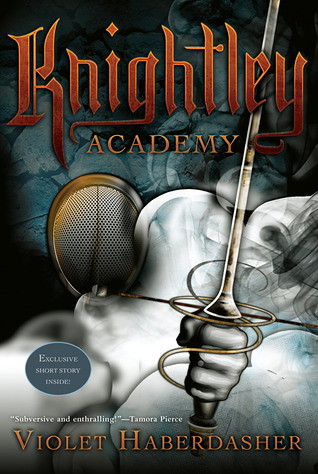
Henry Grim is a servant boy at the Midsummer School—until he passes the elite Knightley Academy exam and suddenly finds himself one of the first commoners at the Academy, studying alongside the cleverest and bravest—and most arrogant—young aristocrats in the country. They thwart Henry’s efforts to become a full-fledged Knight of the Realm, but he and two commoner classmates are determined to succeed. In the process, the boys uncover a conspiracy that violates the Hundred Years’ Peace treaty—and could lead to war! Can Henry manage to save his school and country from their enemies—and continue to study at the Academy?
Henry Grimm is an orphan who works in the kitchens of a prestigious boarding school for boys. As a commoner, he is not allowed to take Knighley Academy entrance exam, but, after finding a loophole in the rules, he is admitted as the first commoner to Knightley Academy - a school for Knights. Knightley Academy follows Henry and his friends and the troubles and truimphs they experience during their first year at Knightley.
Initially, you might think that Knightley Academy by Violet Haberdasher, is just another Harry Potter knock-off. There’s an orphaned boy gaining access to a special school, who is mentored by adults who want him to succeed. A teacher who seems to dislike said boy on sight, a nemisis much like the pointed-chin Malfoy. Even the way the story is written is reminiscent of Harry Potter. However, that’s where the similarities end.
While the stories do share a lot of similar elements, they are not the same. The idea of a young, unfortunate boy finding out that he’s special in some way (or in this case, attending a special school), finding friends in unlikely places and over coming a difficult situation - against all odds - is not a new idea. It’s been written and rewritten for years. It’s the execution of the idea that makes a story stand out.
I’d venture to say that Knightley Academy can stand on it’s own. There were times when I found the prose a little awkward and the situations a little unrealistic. One of the conflicts in the story was related to a political treaty and politics is a main theme that runs through the entire narrative and sometimes reads a bit dry. As the story progresses, it comes into its own, and even though it started slow, the end had me rooting for Henry.
While I wouldn’t call it original, I think that it is a fun read for young readers. I’m looking forward to seeing how this story develops.
Sounds like an interesting book! Nice review!
ReplyDeleteNerd Girls at Books to the Sky